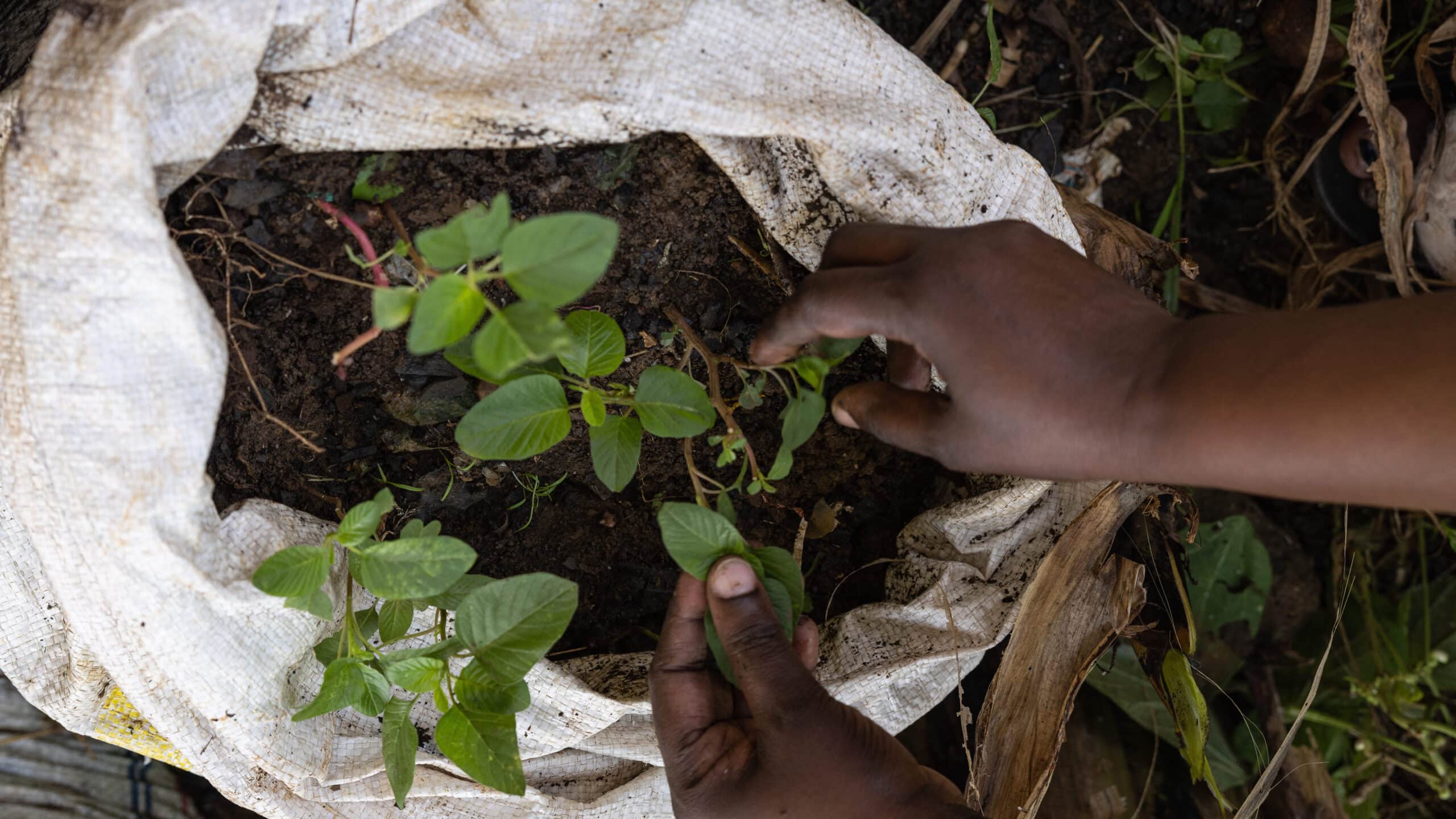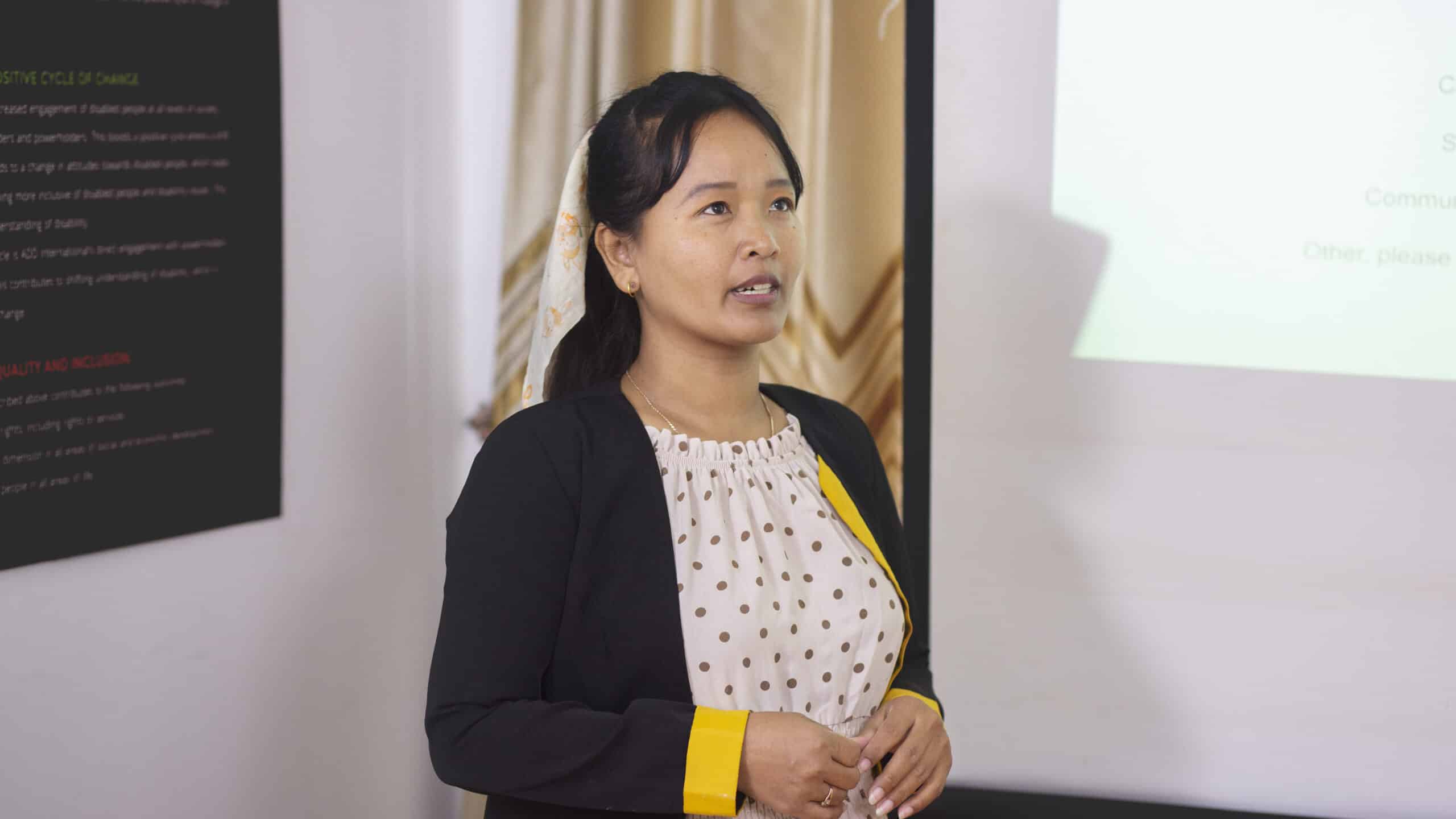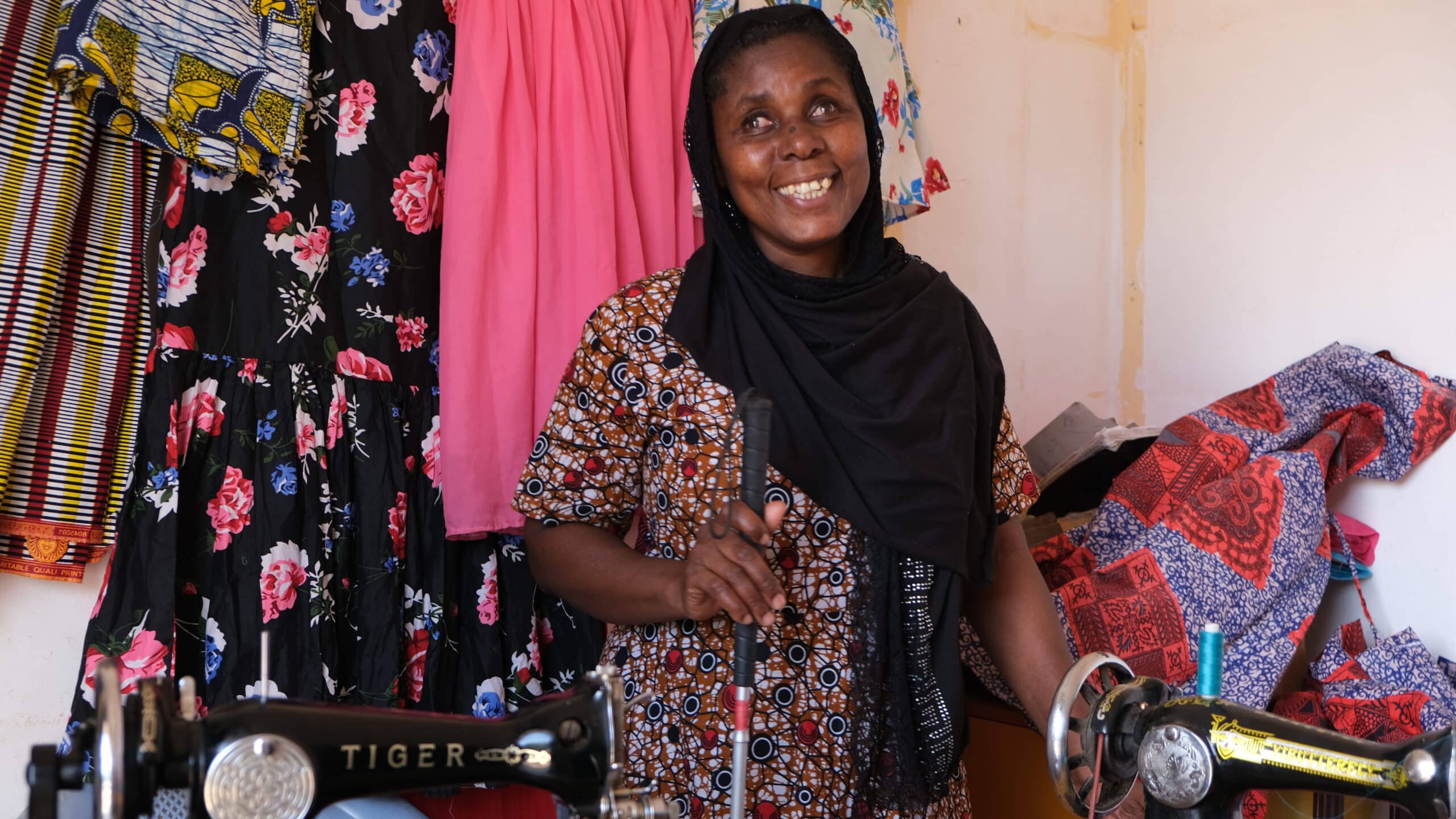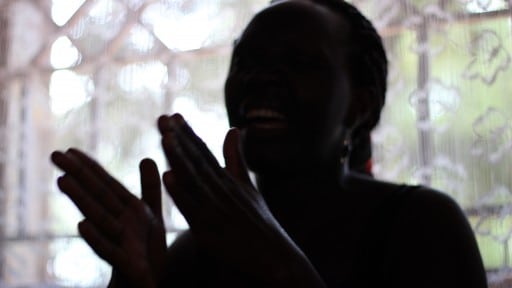We’re striving to put learning at the heart of everything we do.
We engage directly with disabled people to really understand the challenges they face. Discover our latest research as well as leading disability reports from other recommended sources.
Key lessons from our livelihoods, education and gender work.
We recently pulled together key lessons from three of our core thematic areas – livelihoods, inclusive education and gender. We wanted to collate the critical lessons we’ve learned and help offer guidance and support to others pursuing work in these areas.
- Bridging the Gap – Organisations of Persons with Disabilities role in making work more inclusive of persons with disabilities.
- Organisations of Persons with Disabilities role in making education more inclusive of children with disabilities.
- Organisations of Persons with Disabilities – a channel for the voice and activism of women and girls with disabilities.
Strengthening and Supporting Disability Rights Organisations.

Our approach
An independent learning review of our organisational strengthening model.

how we add value
Mapping our operational and programme activities to achieve our mission of positive and lasting change in the lives of disabled people.

Building Movements and Empowering Activists
Learning paper on the lessons we have learned from our work with disabled person’s organisations in Bangladesh.
Additional organisational strengthening tools.
- Bangladesh Capacity Building Learning Review.
- Cambodia Capacity Building Learning Review and Annex.
- Cross-cutting Capacity Building Learning Review.
- Three Circles Tool – a tool for assessing capacity.
COVID-19 Research.
As the world responds to the COVID-19 Global pandemic we have been collecting evidence of its impact.
Bangladesh. Read our report of how communities of persons with disabilities have been affected in Bangladesh.
- COVID Double Jeopardy
- DPO COVID Impact and Action
- Action by 39 Organisations of Persons with Disabilities
Cambodia. Read our report exploring COVID, Violence Risk and Income Loss.
Uganda. Read our report exploring COVID, Income loss, risk of violence and the response of persons with disabilities and their representative organisations in Uganda.
Our Guidelines for Mainstreaming Disability.
The importance of disability inclusive development is growing. Development organisations therefore need to be planning how they will ensure their programmes are increasingly inclusive of disabled people. Read our report into how you can mainstream disability into your development work.
Our Mental Health Research.
In Bangladesh, ADD has been working with one of the most neglected and deprived groups – persons with psychosocial disabilities (PPD). With support from Comic Relief we are delivering a 4 year ’Community based Mental Health of Children and Youth at Risk and Support Services’ project. Together with our partners, we are challenging mental health stigma, negative stereotypes, and discrimination. We are working to raise community awareness and undertake national advocacies to help Organisations of Persons with Disabilities identify people with psychosocial disabilities, and integrate them in development initiatives, and access support services.
Needs Assessment Study.
This ‘Needs Assessment Study’ used a qualitative method to help us better understand the mental health challenges people face and the scale of service needs. We conducted the assessment within the project locations of Bagerhat, Jashore and Dhaka with participation from a cross-section of people, including children, young people, teachers, government, and private service providers. We started the project during COVID-19, and also capture information on how the pandemic has impacted children and young people.
Baseline Report.
The aim of this baseline survey is to understand the current context of mental health in the project locations. The study captures peoples’ understandings and perceptions on mental health issues as well as available services. The baseline has also, to some extent, focused on the mental health impact of the COVID 19 pandemic.
Understanding Stimga.
This study was conducted to better understand mental health stigma and barriers to accessing treatment in Bangladesh. A unique model to demonstrate the potential vicious cycle between stigma and negative impacts on help-seeking behaviours was developed. We also make 8 recommendations to help address these issues.
Gender Research.

Our Gender Approach
Promoting gender equality is a core priority of ADD’s work. In line with our rights based approach, we recognise that everyone is equal in individual value and rights and that specific actions are needed to ensure gender equity and equality of opportunity. We work with organisations which share this approach, and we support our partner DPOs to recognise and address barriers to gender equity in their work.

Lessons from our work to tackle gender based violence
ADD International’s work over the years with disabled women has resulted in an increased focus on the intersectional discrimination of gender and disability. In 2016 we commissioned a review of our gender based violence work. We wanted to identify what has worked and not worked to ensure learning is fed back into practice.

Women with disabilities as agents of change, Tanzania, 2022
Activist women with disabilities and ADD International were able to secure funds for two years of focussed work in Tanzania for the DRIGE (Disability Rights, Inclusion, and Gender Equity) project. This short paper shares a brief overivew of the story, impact and learning from the extraordinary work of the activist women with disabilities at the heart of DRIGE and the support provided to them by ADD International.

Preventing Violence, Cambodia
This learning paper aims to share key insights from our work in Cambodia to prevent violence. Women with disabilities who have directly experienced violence led the research process from designing questions to analysing findings.

Safe Futures, Cambodia
This paper captures emerging learning and potential practice for reducing violence after one year of working on a gender based violence intervention in Cambodia.

Gender based violence in Tanzania
Women with diverse disabilities researched and collected a sample of thirty short life stories from other women and girls with disabilities, and analysed these stories to explore their core themes in relation to their own lived experience.
Our Inclusive Education Research.
We asked disabled children in Tanzania to review our work and tell us what we are doing right and what we need to improve.
Learning Brief About Nurturing Inclusive Teachers.
This is a learning brief about the Mentoring, Coaching, and Community of Learning approach which aims to strengthen teachers’ capacity to create inclusive learning environments for learners with disability. This approach aims to equip teachers with practical skills to ensure all pupils feel supported, valued, and able to reach their full potential.
Our Water and Sanitation Research.
This learning paper focuses on our work to improve sanitation for women and children with disabilities living in extreme poverty in Bangladesh.
Livelihoods research.
Read the learnings from our 9-month study, funded by the Rockefeller Foundation, that looked at how market-based approaches can work for disabled women in Uganda to help lift them out of poverty.
Voices of the Marginalised.
The aim of ‘Voices of the Marginalised’ is to bring the perspectives of those who live in poverty or who are highly marginalised, including those with disabilities, older people and people living with mental health problems, into post-2015 policymaking. Focusing on Bangladesh and Tanzania, people with disabilities and older people were asked to become researchers themselves, and were trained to collect and analyse stories from peers in rural and urban areas.
The Bangladesh report: ‘We can also make change’.
The downloads below are part of the ‘Voices of the Marginalised’ Bangladesh report.
The Tanzania report: ‘Hear my voice: old age and disability are not a curse’.
The downloads below are part of the ‘Voices of the Marginalised’ Tanzania report.

